


The progression of the arms in their degree of disorder from the SbI-II cases is evident here. The arms are generally more fragmentary and cover more of the face of the outer disk. Note the multiple nature of the arm fragments in NGC 5005 and NGC 3627, and the large amount of dust associated with these galaxies.
The twisted arm pattern in NGC 2146 suggests a warped outer disk beyond the plane defined by the flattened central spheroid and its pattern of associated dust.
Notice the very faint smooth outer arm in NGC 4725. This is particularly well seen on the paper prints of the National Geographic-Palomar Sky Survey. The inner tightly wound arms are only moderately well defined. They are difficult to trace as a coherent pattern, but exist in the form of fragments that begin at the rim of the lens at what may be the inner Lindblad resonance. These fragments can be traced for at most ~ 100°, and many are shorter.
A similar non-coherence of the arms is present in NGC 3351. Here the arms are thick and are of low surface brightness. The arm fragments cover much of the disk outside the inner ring.
Note the characteristic linear dust lanes in the SBb galaxy NGC 0613. The lanes are also present in NGC 4725, but are not as pronounced. The four principal arms in NGC 613 have different projected forms. Either the pitch angles themselves are different, or the optical plane is warped.
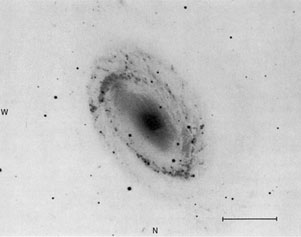
NGC 4725 W100-2156-H Sb/SBb(r)II -22m.47 1213 km/s | 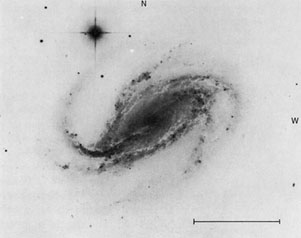
NGC 613 C100-443-Rose SBb(rs)II -22m.24 1526 km/s | |
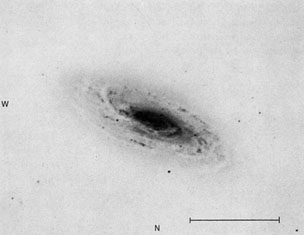
NGC 5005 W100-2170-H Sb(s)II -21m.78 1022 km/s | 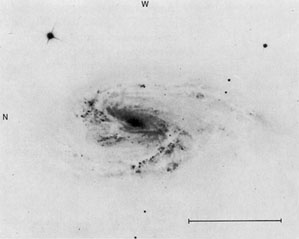
NGC 3627 M66 W100-2363-H Sb(s)II.2 -21m.48 723 km/s | |
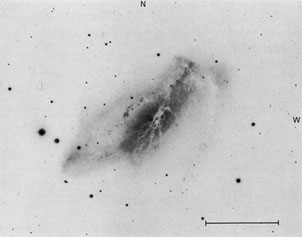
NGC 2146 P200-88-H SbII pec -21m.36 883 km/s | 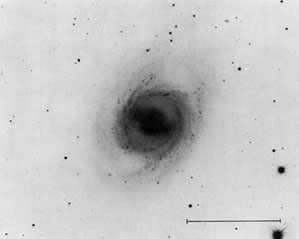
NGC 3351 M95 P200-315-S SBb(r)II -20m.66 779 km/s | 
|